#writing for children
Explore tagged Tumblr posts
Text
#writers#creative writing#writing#writing community#writers of tumblr#creative writers#writing inspiration#writeblr#writerblr#writing tips#writers corner#writblr#writing for children#children's literature#children's books#children's author#helping writers#writing help#help for writers#advice for authors#writing advice#resources for writers#writing resources#writers on tumblr#writers and poets#aspiring author#writer
25 notes
·
View notes
Text
Writing for children requires imagination, simplicity, and heart. Use relatable characters, clear language, and playful dialogue. Keep the plot exciting with a strong moral or message. Always consider the child's age, curiosity, and attention span to create truly engaging stories.
0 notes
Text

this is the single worst way i've ever read to describe an erection, frank herbert
#the next line does call it 'the girder-shape of ecstacy' which is also bad but in a more abstract way than the pure horror of beef#wild that this is abt a 9yo's drug trip#children of dune#dune#speaking of how hard it is to write smut#cannot believe these sentences get published lol
42K notes
·
View notes
Text
📚 Alice’s Guide to Cracking the Code of Stories! 🎭
By Alice Hey, everyone! It’s me, Alice, your go-to expert for fun, snacks, and now… STORIES! 📚️✨ Today, I’m here to talk about Ariel’s latest super-smart paper—and let me tell you, it’s a game-changer! 🏆 Ariel has cracked the secret formula behind what makes stories so exciting, mysterious, hilarious, and sometimes even tear-jerking! 😭 And guess what? It’s NOT just random words on a page—every…
#Alice and Mr. Fluffernutter#Ariel’s storytelling guide#characters in stories#creative writing for kids#educational blog for children#elements of fiction#fun learning activities#fun with storytelling#how to write a story#imaginative writing#kids blog#Learning Through Stories#literacy for kids#story elements#story resolution#story writing basics#storytelling for kids#understanding plot#what is conflict in a story#writing for children
0 notes
Text
8 year old freshly adopted Dick, throwing the moths and flies he caught on Patrol directly at Bruce's face: I got you dinner!
Bruce, who was just bombarded with insects: Chum?!
Dick, smiling cheerfully: Bats eat insects!
Bruce:
Dick: I just read it in a book
Bruce:
Bruce: Bats also eat fruits and nectar
Dick: So you're a fruity bat?
Bruce:
~~~~~~~~~~~~~~~~~~~~~
Dick, throwing an apple at him the next day: Dinner!
Bruce:
#Stupid headcanon but when Dick was a freshly adopted 8 year old who had just found out that his new dad was Batman(or that batman existed)#this should've happened#scenes I'd write in batman part two if i was allowed to#dick grayson#bruce wayne#batfam#batman#nightwing#battinson#incorrect batfamily quotes#dc robin#robin#incorrect batfam#incorrect batman quotes#i love typing bruce:#because his children just make him speechless it's so funny#and yes dick was also calling him gay
13K notes
·
View notes
Text










A child in Gaza holds his cat among the rubble. No home. No safety. No food. Yet he still protects someone more vulnerable than himself. In a place where everything is under attack, mercy survives..Support those who kept their humanity.
#Cats of Gaza#Mercy Under Fire#children of gaza#gaza#cats#cats of tumblr#cute cats#palestine#free palestine#gaza strip#gaza genocide#free gaza#writing#writters on tumblr
5K notes
·
View notes
Text
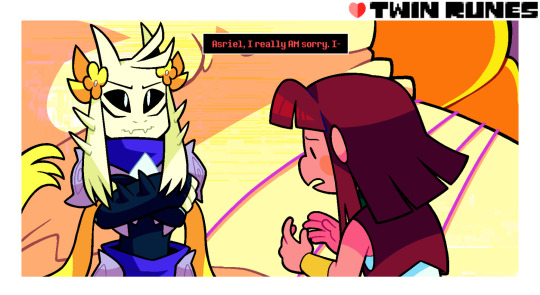
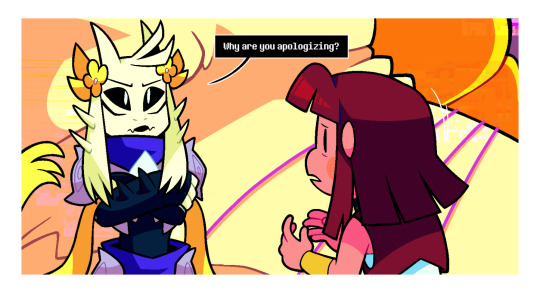
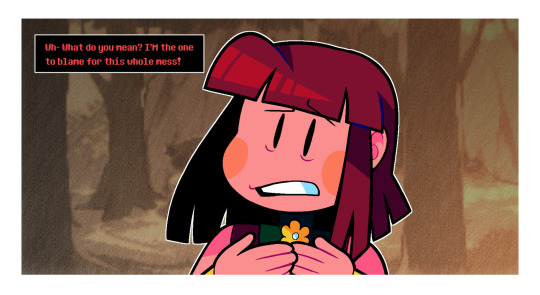
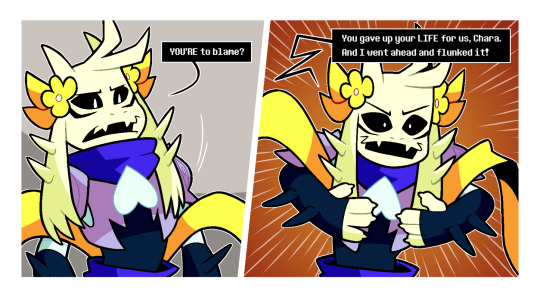
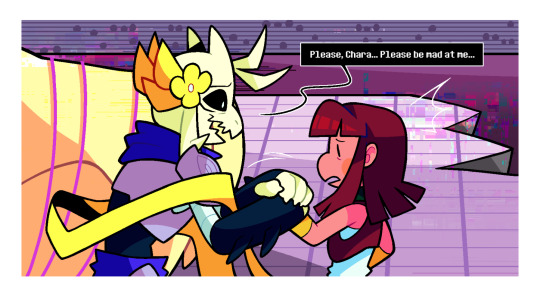
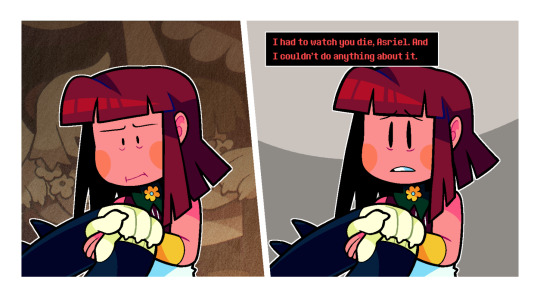
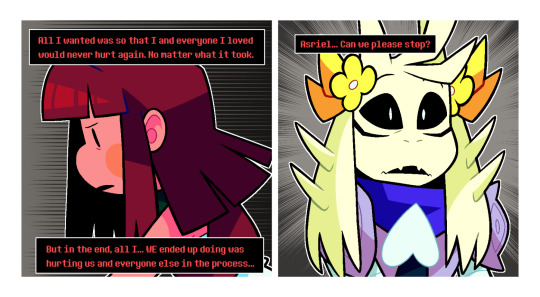
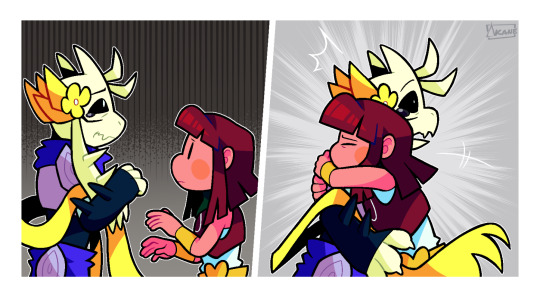
Parallel guilt FIRST - PREVIOUS - NEXT
MASTERPOST (for the full series / FAQ / reference sheets)
#undertale#deltarune#utdr#comic#crossover comic#twin runes#twin runes au#twin runes comic#chara#asriel#flowey#welcome back to another session of the autor is scared of reader reception!#now featuring flowey/asriel!#seriously... whenever I write about chara and their past I get legit scared of how people will take it#because I have seen how people CAN take it#and that scares the absolute shit out of me#but i still wanna tackle it because it is super integral to their and flowey/asriel's character#so you know how people argue about who's to blame in that scenario?#how about they both blame themselves?#and they then argue about it who's more in the wrong?#even though they were both dumb because they were children
5K notes
·
View notes
Video
youtube
The Listening Heart: Designing the Page
#youtube#listeningheart#austin#texas#govote#conceptart#children's books#children's illustration#designing a book#illustrating a page#line art#process art#illustration#illustrative art#sketch to final#jimkeating#jim keating art#freelance illustrator#original story#writing for children
1 note
·
View note
Text
“RESEMBLANCE” — gojo satoru
to satoru’s surprise, his first-born looks nothing like him. | wc: 1.0k+
f!reader, established relationship (you are mrs. gojo), pregnancy mention, you’re in the hospital after giving birth to your beautiful baby girl who looks a lot like you, satoru is a menace to society (and you), talks of sex (so may be a bit suggestive) | star divider by @/cafekitsune, swirl divider from pinterest + edited by me

the first few stages of emotions satoru feels upon seeing and holding his healthy, newborn baby girl in his arms are 1) relief, 2) joy, 3) surprise, and 4) confusion.
as he stares down at the child in his arms, that big mouth of his opens once and all havoc breaks loose.
“this baby isn’t mine.”
the words are simple but not in meaning as it invokes such a reaction out of the nurses and you.
with a few, shocked gasps ringing in the air, you feel all eyes in the room aside from satoru’s (whom is still fixated on your newborn) come onto (the both of) you.
the heat on your cheeks in that moment is nothing compared to the utter rage brewing within you at his audacious behavior.
disbelief written all over your features, you try to ignore the avoidant side eyes of the medical staff. of all the times to spout some ridiculous nonsense, your husband chose now? — what the hell was he playing at? was this bastard accusing you of cheating?
“excuse me?! have you lost your mind?”
“i mean —” he licks his lips as if choosing his next words carefully (which he doesn’t). “she looks nothing like me. are you sure we got the right one?”
you can hear the whole world go silent aside from the beeping monitors in your hospital room. the nurses quickly (and wisely) hurry out.
“looks nothing like you?”, your eyes narrow, repeating his words dangerously low as if you were about to combust. he could practically see the steam coming out of your ears and holds back a chuckle.
“gojo satoru,” he winces at his full name. “that is your daughter — your daughter that i carried inside my stomach for months!”
and it was no easy feat.
perhaps it has something to do with satoru being the strongest, and in that way he has a mutant’s sperm — but your pregnancy was more difficult than the typical one which left you bedridden at only four months. and that is without even mentioning how your child felt the need to come earlier than her due date.
there should be absolutely no doubt in his mind that this is his child, one who is full of surprises right from birth.
“i know… but she doesn’t even have my hair or my nose or my lips! not even my big ears,” he pouts as he inspects the baby, turning her all sorts of (safe) ways to get a better look.
“all that there is, is you.” he finishes, gaze softening with a double meaning to his sentence, and he finally looks up at you sitting on the hospital bed.
“is this what this is about?”
“yes!”, a pitiful whine leaves his lips. “she should’ve come out looking exactly like me — my twin!”
“why does it even matter, ‘toru? she’s still yours in every way but appearance.”
“because, i want everyone to know i did this to you, that we made this child together — but my genes didn’t even put up a fight! how else will everyone who sees us together know you belong to me in such an irreversible way?”
then his sights dart to your stomach, hidden behind your thin hospital gown, his white brows furrowing. “maybe i didn’t fuck you hard enough…” he ponders, lips pursed.
his tone is low, but you hear it. your hands fly over your tummy to shield it from his piercing gaze, heat returning to your cheeks as you let out the scandalized gasp of the century.
there is a certain gleam in his eyes at your reaction — and you don’t like it one bit!
you think about hitting his head with the pillow to knock some sense into him (though it’d likely prove fruitless since his head is so big and boneheaded), but you’d save his beating for later when he isn’t holding your precious girl.
“you—”
with a sudden gasp, he reaches out a hand to you, waving it slightly to satiate your temper. he shushes you gently, whispering, “wait wait — she’s opening her eyes!”
quieting down, the both of you lean in, curious and in anticipation as your little one’s lashes flutter open slowly.
at what stares up at you, your lips part in sheer awe — and your husband stays uncharacteristically silent beside you.
“oh, satoru,” you absolutely melt.
with a coo, you whisper, “she has your eyes.” the very cerulean color you fell in love with once before and have again right now for the second time.
noticing how he hasn’t uttered a single thing, you look over next to you, before your eyes widen at the sight that greets you.
satoru, your husband, is crying. salty tears slip from his ducts and down his flushed cheeks, cute brows scrunched, blue clashing with blue for the first time.
“aw, baby. are you okay?” your own eyebrows knit together in worry and in contentment, noting his tears are of happiness.
all you get in response is a nonsensical blubber and a sniffle.
satoru’s heard it over a hundred times — how his eyes are pretty, beautiful, ethereal — even from you. he’s never cared much for it. to him, they were just eyes and the only value he saw in them is the power they gave him over others.
but now, he understands. and he thinks he’s starting to fall in love with them too.
“she’s so beautiful…” his lip wobbles, voice shaky and quieter than you’ve ever heard it.
“i know,” you breathe.
putting a reassuring hand on his shoulder, you smile. “happy now?” you’re barely able to conceal the amusement in your voice.
“mhm.” he hums, eyes still shimmering and glassy, lips in a pout.
“wanna go home?”
“yes, please.”
there’s nothing more that he wanted to do in that moment than take his baby girl to the loving sanctuary he deems the closest thing to heaven, his paradise — and he’s never letting her go.
extra:
“i can’t believe she only has my eyes, though. i guess i’ll just have to try harder next ti — ow! that hurt!”

#᠙𑣱 — aomi writes#tw children#tw pregnancy#<- implied#gojo x reader#gojo x you#satoru gojo x reader#gojo satoru x reader#satoru x reader#jjk x reader#jujutsu kaisen x reader#jjk fluff#jujutsu kaisen x you#jjk x you#satoru x you#jjk satoru#gojo x y/n#gojo headcanons#jjk drabbles#gojo fluff
5K notes
·
View notes
Text
it's been said before, but leverage season two really is a masterclass of writing around a lead actress' pregnancy. they knew they'd have to give her time off for maternity leave, so they set up a character development plot line near the start of the season which was a natural direction for the character to go based on how she'd already been written. then for the first several episodes leading up to her leave, film her from the chest up or show her back, with only some reliance on loose shirts and large jackets. have her character's development/crisis require her to take time off for herself, but write small scenes that can easily be pre-recorded, so she's never actually gone from the show. then let her return.
it's a great combination of understanding the character, being able to plan good plots ahead of the time, and not being so misogynistic that you resent actors for getting pregnant.
#sophie was never the kind of character to want a pregnancy or children#so writing around her irl pregnancy in a way that doesn't undermine the character is great!#and such a relief. there are no excuses really for not treating your characters this well.#leverage#sophie devereaux#1k#muted#i got tired of seeing that i had new notifs and getting excited about that only to see that it's still this post
6K notes
·
View notes
Text
Child's Writing Exercises and Doodles, from Egypt, c. 1000-1200 CE: this was made by a child who was practicing Hebrew, creating doodles and scribbles on the page as they worked
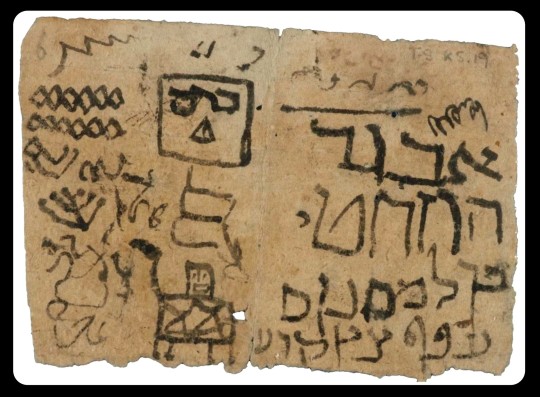
This writing fragment is nearly 1,000 years old, and it was made by a child who lived in Egypt during the Middle Ages. Several letters of the Hebrew alphabet are written on the page, probably as part of a writing exercise, but the child apparently got a little bored/distracted, as they also left a drawing of a camel (or possibly a person), a doodle that resembles a menorah, and an assortment of other scribbles on the page.
This is the work of a Jewish child from Fustat (Old Cairo), and it was preserved in the collection known as the Cairo Genizah Manuscripts. As the University of Cambridge Library explains:
For a thousand years, the Jewish community of Fustat placed their worn-out books and other writings in a storeroom (genizah) of the Ben Ezra Synagogue ... According to rabbinic law, once a holy book can no longer be used (because it is too old, or because its text is no longer relevant) it cannot be destroyed or casually discarded: texts containing the name of God should be buried or, if burial is not possible, placed in a genizah.
At least from the early 11th century, the Jews of Fustat ... reverently placed their old texts in the Genizah. Remarkably, however, they placed not only the expected religious works, such as Bibles, prayer books and compendia of Jewish law, but also what we would regard as secular works and everyday documents: shopping lists, marriage contracts, divorce deeds, pages from Arabic fables, works of Sufi and Shi'ite philosophy, medical books, magical amulets, business letters and accounts, and hundreds of letters: examples of practically every kind of written text produced by the Jewish communities of the Near East can now be found in the Genizah Collection, and it presents an unparalleled insight into the medieval Jewish world.
Sources & More Info:
Cambridge Digital Library: Writing Exercises with Child's Drawings
Cambridge Digital Library: More About the Cairo Genizah Manuscripts
#archaeology#anthropology#history#artifact#middle ages#medieval#near east#egypt#cairo#children in archaeology#judaism#medieval jews#hebrew#writing exercise#doodle#art#cairo genizah#jewish history#reminds me of onfim#kids have always been kids
10K notes
·
View notes
Text
I just know in my heart of hearts that in "Star Trek" at one point, there was some moral panic somewhere on Vulcan (among the uppity sorts) because Human culture was "infecting" the local youth with their overly emotional, destructive, unproductive, frivolous, and uneducational ways.
And what was actually happening was that a bunch of Vulcan kids got really into 23rd-century "Minecraft" or something.
Small Vulcan child @ another Vulcan child: (in a tone that sounds flat to Humans but angry as hell to Vulcans) "You have compromised the optimization of my fortress. I am having an emotional urge to blow up your house... in Minecraft."
#tossawary star trek#vulcans#I have notes on a fic I probably won't write about spock and kirk meeting as children through a minecraft forum#baby jim kirk writes a damn novel of an essay on changes that need to be made to make a better in-game Vulcan planet/biome#spock writes a damn novel of an essay back with further research and criticism#Kirk: “You are the ONLY person to notice that I adjusted the gravity in my New Vulcan demo!!! Wanna help me make my mod???”#meeting your t'hy'la through subspace net video game modding communities; nerds in space#fic ideas#spock
3K notes
·
View notes
Text
Writing Notes: Children's Dialogue
Language is extremely complex, yet children already know most of the grammar of their native language(s) before they are 5 years old.
BABBLING
Babbling begins at about 6 months and is considered the earliest stage of language acquisition
By 1 year babbles are composed only of the phonemes used in the language(s) they hear
Deaf babies babble with their hands like hearing babies babble using sounds
FIRST WORDS
After the age of one, children figure out that sounds are related to meanings and start to produce their first words
Usually children go through a holophrastic stage, where their one-word utterances may convey more meaning
Example: "Up" is used to indicate something in the sky or to mean “pick me up”
Most common first words (among the first 10 words uttered in many languages): “mommy,” “daddy,” “woof woof,” “no,” “bye,” “hi,” “yes,” “vroom,” “ball” and “banana”
WORD MEANINGS
When learning words, children often overextend a word’s meaning
Example: Using the word dog to refer to any furry, four-legged animal (overextensions tend to be based on shape, size, or texture, but never color)
They may also underextend a word’s meaning
Example: Using the word dog to refer only to the family pet, as if dog were a proper noun
The Whole Object Principle: When a child learns a new word, (s)he is likely to interpret the word to refer to a whole object rather than one of its parts
SYNTAX
At about two years of age, children start to put words together to form two-word utterances
The intonation contour extends over the two words as a unit, and the two-word utterances can convey a range of meanings:
Example: "mommy sock" = subject + object or possessive
NOTE: Chronological age is NOT a good measure of linguistic development due to individual differences, so instead linguists use the child’s mean length of utterance (MLU) to measure development
The telegraphic stage describes a phase when children tend to omit function morphemes such as articles, subject pronouns, auxiliaries, and verbal inflection
Examples: "He play little tune" or "Andrew want that"
Between 2;6 and 3;6 a language explosion occurs and children undergo rapid development
By the age of 3, most children consistently use function morphemes and can produce complex syntactic structures:
Examples: "He was stuck and I got him out" / "It’s too early for us to eat"
After 3;6 children can produce wh-questions, and relative pronouns
Sometime after 4;0 children have acquired most of the adult syntactic competence
PRAGMATICS
Deixis: Children often have problems with the shifting reference of pronouns
Children may refer to themselves as "you"
Problems with the context-dependent nature of deictic words: Children often assume the hearer knows who s/he is talking about
AUXILIARIES
In the telegraphic stage, children often omit auxiliaries from their speech but can form questions (with rising intonation) and negative sentences
Examples: "I ride train?" / "I not like this book"
As children acquire auxiliaries in questions and negative sentences, they generally use them correctly
SIGNED LANGUAGES
Deaf babies acquire sign language in the same way that hearing babies acquire spoken language: babbling, holophrastic stage, telegraphic stage
When deaf babies are not exposed to sign language, they will create their own signs, complete with systematic rules
IMITATION, REINFORCEMENT, ANALOGY
Children do imitate the speech heard around them to a certain extent, but language acquisition goes beyond imitation
Children produce utterances that they never hear from adults around them, such as "holded" or "tooths"
Children cannot imitate adults fully while acquiring grammar
Example:
Adult: "Where can I put them?" Child: "Where I can put them?"
Children who develop the ability to speak later in their childhood can understand the language spoken around them even if they cannot imitate it
NOTE: Children May Resist Correction
Example: Cazden (1972) (observation attributed to Jean Berko Gleason) – My teacher holded the baby rabbits and we patted them. – Did you say your teacher held the baby rabbits? – Yes. – What did you say she did? – She holded the baby rabbits and we patted them. – Did you say she held them tightly? – No, she holded them loosely.
Another theory asserts that children hear a sentence and then use it as a model to form other sentences by analogy
But while analogy may work in some situations, certainly not in all situations:
– I painted a red barn. – I painted a barn red. – I saw a red barn. – I saw a barn red.
Children never make mistakes of this kind based on analogy which shows that they understand structure dependency at a very young age
BIRTH ORDER
Children’s birth order may affect their speech.
Firstborns often speak earlier than later-born children, most likely because they get more one-on-one attention from parents.
They favor different words than their siblings.
Whereas firstborns gabble on about animals and favorite colors, the rest of the pack cut to the chase with “brother,” “sister,” “hate” and such treats as “candy,” “popsicles” and “donuts.”
The social dynamics of siblings, it would appear, prime their vocabularies for a reality different than the firstborns’ idyllic world of sheep, owls, the green of the earth and the blue of the sky.
MOTHER'S LEVEL OF EDUCATION
Children may adopt vocabulary quite differently depending on their mother’s level of education.
In American English, among the words disproportionately favored by the children of mothers who have not completed secondary education are: “so,” “walker,” “gum,” “candy,” “each,” “could,” “wish,” “but,” “penny” and “be” (ordered starting with the highest frequency).
The words favored by the children of mothers in the “college and above” category are: “sheep,” “giraffe,” “cockadoodledoo,” “quack quack,” the babysitter’s name, “gentle,” “owl,” “zebra,” “play dough” and “mittens.”
BOYS / GIRLS
One area of remarkable consistency across language groups is the degree to which the language of children is gendered.
The words more likely to be used by American girls than by boys are: “dress,” “vagina,” “tights,” “doll,” “necklace,” “pretty,” “underpants,” “purse,” “girl” and “sweater.”
Whereas those favored by boys are “penis,” “vroom,” “tractor,” “truck,” “hammer,” “bat,” “dump,” “firetruck,” “police” and “motorcycle.”
Tips for Writing Children's Dialogue (compiled from various sources cited below):
Milestones - The dialogue you write should be consistent with the child's developmental milestones for their age. Of course, other factors should be considered such as if the child has any speech or intellectual difficulties. Also note that developmental milestones are not set in stone and each child is unique in their own way.
Too "Cutesy" - If your child characters are going to be cute, they must be cute naturally through the force of their personality, not because the entire purpose of their existence is to be adorable.
Too Wise - It’s true kids have the benefit of seeing some situations a little more objectively than adults. But when they start calmly and unwittingly spouting all the answers, the results often seem more clichéd and convenient than impressive or ironic.
Unintelligent - Don’t confuse a child’s lack of experience with lack of intelligence.
Baby Talk - Don’t make a habit of letting them misuse words. Children are more intelligent than most people think.
Unique Individuals - Adults often tend to lump all children into a single category: cute, small, loud, and occasionally annoying. Look beyond the stereotype.
Personal Goals - The single ingredient that transforms someone from a static character to a dynamic character is a goal. It can be easy to forget kids also have goals. Kids are arguably even more defined by their goals than are adults. Kids want something every waking minute. Their entire existence is wrapped up in wanting something and figuring out how to get it.
Don't Forget your Character IS a Child - Most of the pitfalls in how to write child characters have to do with making them too simplistic and childish. But don’t fall into the opposite trap either: don’t create child characters who are essentially adults in little bodies.
Your Personal Observation - To write dialogue that truly sounds like it could come from a child, start by being an attentive listener. Spend time around children and observe how they interact with their peers and adults. You can also study other pieces of media that show/write about children's behaviour (e.g., documentaries, films, TV shows, even other written works like novels and scripts).
Context - The context in which children speak is crucial to creating realistic dialogue. Consider their environment, who they're speaking to, and what's happening around them. Dialogue can change drastically depending on whether a child is talking to a friend, a parent, or a teacher. Additionally, children's language can be influenced by their cultural background, family dynamics, and personal experiences. Make sure the context informs the dialogue, lending credibility to your characters' voices.
Sources and other related articles: 1 2 3 4 5 6 7 8 9 10
Writing Notes: On Children ⚜ Childhood Bilingualism More: Writing Notes & References ⚜ Writing Resources PDFs
#writing prompt#writeblr#writers on tumblr#spilled ink#poets on tumblr#writing notes#children#writing tips#literature#writing advice#writing reference#studyblr#langblr#linguistics#dark academia#dialogue#writing resources
5K notes
·
View notes
Text
mr. magician

synopsis: at linkon’s summer carnival, sylus adds a new role to his resume.
tags: tooth-rotting fluff, carnival, sylus uses his evol to change the color of your prize, a little girl sees him and thinks he’s a magician, sylus doesn't know what to do but they become buddies
word count: 1.2k
a/n: this was supposed to be a drabble and then it was not. inspired by the part in “valleydream bloom” when he changes the colors on the flower crown

The smell of popcorn and sweets fills the air on a breezy Friday afternoon.
At Linkon’s annual summer carnival, couples and families gather to ride rides, play games, and win prizes.
You and Sylus are no exception.
For such a juvenile place, it’d taken less convincing than usual for him to come along. Once you’d practically dangled the challenge of the carnival’s punching game in his face, he’d nodded his agreement with poorly concealed determination.
But the second you’d stepped through the colorful fairground gates, your attention was stolen by the prizes in the first tent. Lining the walls was an array of human-sized teddy bears, wearing gentle smiles and shiny ribbon bow ties. You’d gravitated toward them like a moth to a flame, and Sylus, chuckling fondly, had followed closely behind.
You didn’t even check to see what game it was (balloon darts, it turned out)—you were going to win one. And win you did.
“Aw,” you pout, nearly swallowed by the fluff of your new yellow bear as you waddle toward a picnic table. “I wanted the blue one.”
Humming, Sylus effortlessly lifts your new friend from your slipping grasp and rests it on the wood below. “Then you'll have it.”
With a casual wave of his hand, familiar red and black wisps create a dramatic scene: the innocent plushie surrounded by darkness, its stubby cotton limbs shackled by the unforgiving tether of Sylus’s Evol.
The crisis lasts only for a moment. In the next second, your hostage is freed—and now bathed in a soft sky blue.
“Thank you!” you cheer, barreling into him for a side hug. “I love it.”
Chuckling at your enthusiasm, Sylus wraps an arm around you and bends down to nuzzle your hair. “You’re welcome, sweetie. Now we have an extra set of hands to cheer me on when I—”
“Woahhh,” a small voice gasps behind you.
Raising your head abruptly, you match Sylus’s confused expression with your own. Whirling around, you search for the voice’s owner and come up short.
Until you look down.
Before you, hopping excitedly from foot to foot, is a little girl around 6 years old. She looks cherubic under the midday sun, with brown skin, chubby cheeks, and green bows encasing two dark braids on her shoulders.
“How'd you do that?” she asks, big brown eyes staring at Sylus in amazement.
But Sylus, who’d seen the girl and assumed she was talking to you, has politely excused himself from the conversation to tinker with the crooked eyeball on your plushie. It's not until you gently elbow his ribs that he realizes the girl is speaking to him.
When he meets her gaze, an unprepared huff of air escapes him. “How did I….” In a rare fumble, he pauses, uncertain ruby eyes flitting over to you for help. But you stand back with an encouraging smile.
Hiding his scowl, Sylus sighs softly and turns back to the waiting child, beginning a bit too technical of an explanation. “That…was my Evol. I can sense the energy in objects and change it into—”
“Are you a magician?” she blurts out, clearly having held back for a while.
As his words are cut off, Sylus’s mouth parts in a small ‘o,’ his teeth showing slightly in something between a grimace and a scandalized laugh. “Am I a…no, I'm not. I'm sure you could find one at a place like this, though. Why don’t you and your parents go look?”
The girl squints at Sylus, eyes darting from his hands to the awkward grin on his face. She remains silent and skeptical for several moments, and then…
“No,” she says simply, turning her nose up and crossing her arms. Her small lips droop into a frown, and she pins Sylus in place with an accusing glare.
“No?” he repeats incredulously, as if asking if he heard her right.
She nods like his guilt is clear as day. “You’re a magician,” she asserts. “My dad says magicians keep their magic a secret. You just don't wanna tell me.”
Again, Sylus turns to you imploringly, eyes begging you for rescue. But all you give him is a supportive thumbs-up, shooing him forward with a wink.
Exhaling deeply, Sylus crouches down. “You’re…very perceptive,” he starts. The girl’s face scrunches in confusion. “Smart, I mean. I'm new to…magic school, so I can’t tell anyone about my powers yet. Or else, they might want me to leave before I can get really good.” As the girl’s face contorts in horror, a genuine grin blooms across Sylus’s. “It's good that you managed to notice me, though,” he reassures her. “That means I'm learning well.”
Smiling back at him, the girl looks down shyly, as if pondering something. “Um…Mr. Magician,” she mumbles, “can you help me like you did the teddy bear? I told my mom I wanted purple bows today, but she gave me green ones,” she pouts. “Can you make them purple? I promise I won’t tell.”
Chuckling softly, Sylus taps the corner of his eye twice. “Close your eyes,” he whispers, and the girl obliges almost immediately. A moment later, he snaps his fingers, and a brilliant purple starts to erode the olive green in her hair. It's like something out of a fairytale.
And clearly, the princess agrees. When Sylus gives her permission, she opens her eyes and takes her braids in eager hands, gasping in wonder at the bows’ new color. Soon after, the gasp morphs into an overjoyed screech, making him wince at the volume.
Giggling through her toothy grin, she bounces up and down. “Thank you Mr. Magician!” she beams. “Um…here! You can have this,” she offers, digging in the pocket of her sequin overalls. A second later, and she pulls out a fuzzy red panda keychain.
“I won it from the duck pond,” she says proudly. “You should take it since you like colors. It’s red like your eyes.”
Sylus hesitates. “Are you sure you’d like me to—”
“Yes,” she urges, tiny eyebrows furrowed in resolve. “My dad says when people make you happy, you should make them happy back. Take it.” Leaving no room for argument, she thrusts the toy into Sylus’s limp palm.
“Thank you. It’s…very nice,” he acquiesces.
“Cassidy? Cassie, where are you?”
At the sound of the concerned female voice, the girl’s eyes go wide in alarm. “Uh oh…I'm supposed to be getting cotton candy. I gotta go now—um, thank you, sir! Good luck with your magic!” Waggling her hand enthusiastically, she waves at you, too, before scurrying back to her mother.
Turning the keychain over in his palm, Sylus studies it briefly before returning to your side, a bemused expression on his face.
“Mob boss, fruit vendor, singer, and magician, huh? You've got quite the resume,” you snicker.
“No thanks to you,” he says flatly, pushing the keychain into your hands.
Cheekily, you open the latch and hang the panda from his belt loop. With an exasperated sigh, he allows it. “I've never seen you not know what to do before. It was cute,” you tease, leaning up to poke his cheek. “But since you’ve had such a tough day…why don't we try out your boxing game now, Mr. Magician?”
#i don't write children outside of calebmc so this was an interesting experence#too late to second guess it now#iris writes#love and deepspace#love and deepspace x reader#love and deepspace sylus#sylus x reader#love and deepspace fluff#sylus fluff#lads#lads fluff#lads sylus#lads x reader#lnds#lnds fluff#lnds sylus#lnds x reader#sylus x you#sylus#sylus qin
1K notes
·
View notes
Text
Eldritch Children
Hmmm
Wanna know would be a fun prompt.
So you know those stories where Danny goes all eldritch on a Gotham Rogue (mainly the Joker) after he attacks someone Danny cares for or him.
What if, instead of Danny, it's a deaged Ellie and/or Dan. What if Danny was hit by that one device that Vlad hit him with during that one DP episode where his powers were shut off for like 6 hours or something similar.
Basically Danny can't use his powers, he gets captured by a rogue, maybe it's being live broadcast or streamed, his tiny toddlers are there or while being babysat see the livestream/broadcast and decide to go save their 'Mama' from the 'baddy peoples'.
The Bats and Birds get there just in time to see a (or two) tiny toddlers demanding the 'baddy peoples' to give them their 'Mama' back or else. The Rogue laughs and says back like 'and how do you plan to make us?'
Then the child(ren) go full on (tiny) eldritch beast mode and takes everyone 'bad' out like it was nothing. (The cameras glitch out the moment they go eldritch so no one outside the room sees it happening)
Danny unties himself (he's been tied up so much he learned how to undo them even in his human side) or is untied and runs past the Bats/Birds ignoring them as they try stopping him and runs to his kid(s).
#danny phantom#dp x dc#blue rambles#danny fenton#crossover#danny phantom dc#writing ideas#random idea#dpxdc#deaged Dan#de aged dani#Danny is called mom#Danny kids go Eldritch mode to protect him#he coos at his kid(s) as they are in eldritch mode#telling them how brave. strong. great they are and how amazingly scary they are and how they are such good little ghosties#everyone thinks Danny is human and somehow had eldritch monster children with some eldritch monster#anyways I want everyone to think Danny is normal and his kids are not#he gets super protective and defensive when Batman tries 'ask' about his kids aka trying to figure out if they are a threat#or if their 'father' is if he comes looking for them#it would be funny if its toddler Ellie and baby Dan who are there#Ellie is stomping her foot around demanding her 'Mama' and Dan makes pouty angry agreements/grunts#no one is ready for the two of them to go eldritch beast mode
1K notes
·
View notes
Text

Look at this creature. Behold this small man. In the face of it all* he does what he can. And every night, in spite of his scars, with all of his might he sings to the stars.
*Anodonthyla theoi is Critically Endangered due to habitat loss
#frogs#animals#poetry#it's a metaphor#about politics if you'll believe me#sometimes I think I should get into writing children's books#but then i remember that I have a very successful and happy career and what I do not need is more on my plate#I haven't poyumed in such a long time#this was fun#Anodonthyla#Anodonthyla theoi
2K notes
·
View notes